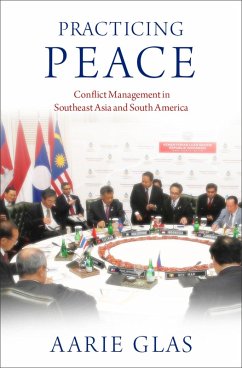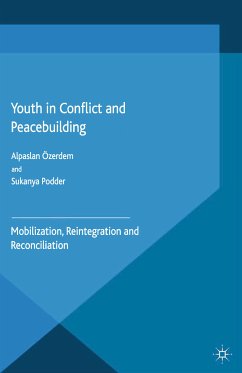Southeast Asia and South America are regions made up of largely illiberal states lacking stabilizing great powers or collective identities. But despite persistent territorial disputes, regime instability, and interstate rivalries, both regions have avoided large-scale war for decades. What accounts for the lack of war in these regions, and importantly, how are conflicts managed? In Practicing Peace, Aarie Glas offers a comparative regional perspective on conflict management and diplomacy in Southeast Asia and South America. Glas finds that regional interstate relations are shaped by particular habitual dispositions--discrete sets of processual and substantive qualities of relations understood and enacted by diplomatic communities of practice. Different habitual dispositions in each case shape conflict management and regionalism in important ways, and lead to a tolerance of limited regional violence. Glas expands on new developments in social International Relations theory to develop a practice-oriented and interpretive account of regional relations and explores the existence of habitual dispositions across crucial cases of regional conflict management, including the Southeast Asian response to the Preah Vihear dispute in 2011 and the South American response to the Cenepa conflict in 1995. Drawing on novel research methods and detailed interviews with regional practitioners, Practicing Peace challenges existing scholarly claims of peace in Southeast Asia and South America. Instead, Glas argues that officials successfully manage pervasive conflict short of war in both regions. He provides an in-depth look into how diplomacy unfolds and peace is practiced within diplomatic communities, from government actors to organizational officials, as they attempt to respond to and resolve territorial disputes.
Dieser Download kann aus rechtlichen Gründen nur mit Rechnungsadresse in A, B, BG, CY, CZ, D, DK, EW, E, FIN, F, GR, HR, H, IRL, I, LT, L, LR, M, NL, PL, P, R, S, SLO, SK ausgeliefert werden.









